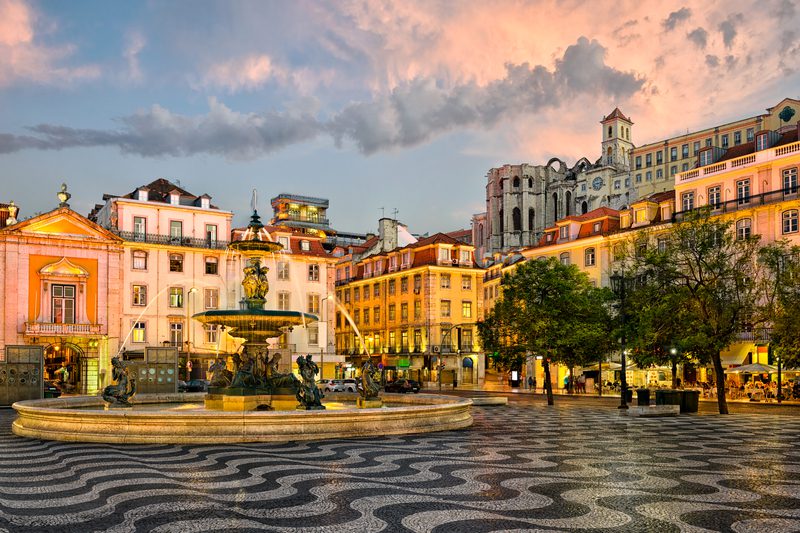As the home of fado music and colorful cobbled streets, Lisbon has a plethora of activities, sights, restaurants, and bars. If you’re planning on studying abroad in Lisbon, you will immerse yourself in Portuguese culture like few others will. Below is a list of ten reasons why you should study abroad in Lisbon.
Education
First things first, if you want to study abroad then the operative word is study. Where you choose greatly affects the quality of education you receive. Lisbon offers students a qualified network of both public and private universities and research centers, promoting close collaboration with higher education institutions of international standing (such as MIT or Carnegie Mellon).
There is a scheme called ‘The Lisbon MBA,’ which was created through a partnership between the Nova University of Lisbon, the Catholic University of Portugal, and the MIT Sloan School of Management. The city itself additionally offers a variety of extended research programmes. Universities and research centers in Lisbon encourage exchange between teachers, students and researchers through various international cooperation programs.
Affordable Tuition and Cost of Life
Lisbon is one of the lowest cost cities in the European Union. The cost of attending higher education is also lower than average.
Accommodation
Lisbon offers around 72 students residences, principally located in the city centre, with easy access to the various campuses around the city. Lisbon also boasts numerous internationally acclaimed hostels; offering high-quality accommodation at reduced prices, which have received several awards.
Sporting Opportunities and Great Climate
In Lisbon the sun shines for approximately 289 days a year! Lisbon enjoys a Mediterranean climate and is known for its unique light. There is excellent cuisine, with plenty of bars and restaurants for you to discover and enjoy.
Lisbon being the sunniest capital in Europe means you have the freedom to try and practice a huge variety of sports such as jogging, biking, hiking, golf, horse riding, football or skateboarding. The proximity to the river allows you to go rowing, canoeing, surfing, sailing or kitesurfing. There are two spectacular coastal sites nearby (Guincho and Ericeira), which are surfing hotspots. There is a reason Lisbon is the 2021 European Capital of Sport.
Friendly People and a Welcoming City
Lisboners are friendly and spontaneous. 42% speak two foreign languages and at least 23% speak three. The most spoken foreign languages are English, French and Spanish. Lisbon is home to numerous communities from Brazil, Cape Verde, Angola, Ukraine, India and China, among others.
Culture and Creativity
History is present at every corner when we walk through Lisbon’s old neighborhoods of Baixa, Alfama and Castelo. At night, you can easily find places to hear Fado, Lisbon’s typical musical genre, recognized by UNESCO as an intangible heritage of humanity in 2011. There is always something happening in Lisbon, from major concerts to film and music festivals. Lisbon has a wide range of cultural facilities, shops and places of leisure with strong links to the city’s traditional neighborhoods. It is a truly creative city with a variety of cultural events and over 75 museums and galleries.
Safety
Security is one of the strengths of the city of Lisbon and is even considered one of the safest capitals in Europe. Portugal and Lisbon have low indicators of violent crime.
A Green City
Environmental sustainability is one of Lisbon’s strong points. The city has a network of station points to supply electric cars and of cycle paths connecting residential areas to services and green areas. Besides the city’s major green areas – Monsanto Forest Park and the Bela Vista Park – there are also several parks and gardens of historic and artistic interest, where you can relax and enjoy the city.
Leisure and Entertainment
Lisbon hosts events (many of international notoriety) throughout the year for a diversity of audiences (E.g.: the Web Summit, the Rock in Rio festival, the Volvo Ocean Race, etc). Along the Tagus waterfront are numerous places to dine, drink or dance, such as the Alcantara Docks. The area of Bairro Alto, home to the city’s original Fado houses, is now full of bars and small restaurants.
A Cosmopolitan City Open to the World
Lisbon is not only Europe’s Atlantic hub, but also that of Africa and the Americas. Portuguese explorers set sail from the Tagus river in the fifteenth and sixteenth centuries to give “new worlds to the world” (Luis de Camões, in “Os Lusiadas”). Lisbon has always welcomed new people and cultures, lending its inhabitants a spirit of great openness towards foreigners, as evidenced by the many favorable testimonies of those who work or study here.
SEE ALSO: Study Abroad in Rome


